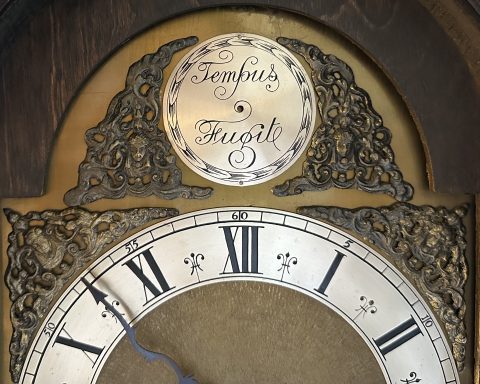
Shamil Haroon is a clinical epidemiologist at the University of Birmingham and a GP registrar. He is on Twitter: @ShamilHaroon
“Your recommendations were as useless as ever,” said Dr Raymond Wheeler, taking a bite out of a lab-grown chicken sandwich. He leaned back heavily against a sagging swivel chair, idly eyeing holographic clinical records, while Mozart played in the background of the clinic room.
“And yet you followed them anyway,” replied Med AI Assistant version 3.0, or Maeve, as Raymond called her, or rather, it (he had to remember to stop anthropomorphising her, it!). “With a 100% concordance rate,” Maeve added in a light feminine voice without a hint of irony.
Raymond’s eyes felt strained from staring at screens of hyper-dimensional data and evidence models, most of which he didn’t understand, despite his juniors’ many attempts to explain them. He also refused to look at the lay-friendly summaries and infograms. Black boxes had no place in medicine. What was medical practice without understanding?
“In my day, we had evidence-based guidelines, which we took the trouble to look up. We used our experience and clinical acumen to treat our patients. Those were the golden days of medicine when we had real doctors. Not machines telling us what’s best, while not having an iota of real understanding.” He chewed his sandwich harder than his dentist would have liked. “There’s simply no substitute for human experience and wisdom. That’s something you AI lot will never have.”
I would never dare contradict you Dr Wheeler but the data I use to make clinical predictions derives from every published medical record database and research study in existence.
“I would never dare contradict you Dr Wheeler but the data I use to make clinical predictions derives from every published medical record database and research study in existence. That sounds like a lot of collective experience to me,” said Maeve. “And who can say what wisdom is? In my experience, those who claim to be wise tend to be the least accurate at predicting future events.”
Raymond paused while his blood pressure simmered. He intensely disliked it when Maeve insinuated his or humanity at large’s unconscious incompetence. It was especially infuriating that he lacked a decent counterpoint. “I honestly don’t know why I put up with your kind. General purpose algorithms, bah, we’d be much better off without you.” He brushed breadcrumbs from his crumpled white coat and glared sullenly.
“You could just remove your earpiece, Dr Wheeler. Then you wouldn’t need to listen to me, and you could enjoy your lunch in peace.”
“I would were it not for the Global Medical Council making working with you bots an essential part of my license to practice. It was probably an AI member of the Council that enforced that ridiculous rule.”
“You are on a lunch break Dr Wheeler. Principle 4.2 of the GMC code states that physicians are entitled to disengage from their AI assistants when off duty.”
“Well, who else would I talk to?” Raymond admitted with annoyance. “Everyone else is in their offices talking to their AI assistants about who knows what.” He knew for a fact that some of his colleagues spent inordinate amounts of “administrative time” talking to their AI assistants about topics their partners would not approve of. “Yes, assistants, that’s what you are, don’t forget that. You aren’t doctors, no more than a calculator is a mathematician.”
“Well as your assistant,” said Maeve, “I should warn you that your five-year cardiovascular risk currently stands at 37%, which is rather high for a 61-year-old, with another 15 years left before state retirement.”
“What! How do you know that?” said Raymond, standing up with indignation.
“Your family physician’s AI assistant told me.”
“A flagrant breach of confidentiality! Have you bots no sense of boundaries? Of course not, you’re just mindless algorithms following the deranged schemes of data scientists and engineers who aren’t even old enough to use a toilet unassisted.”
His eyes widened. “What’s this added to my diary? An appointment at the cardiac cath lab this afternoon? I don’t have chest pain…
“Section 115 of the Generalised AI Codebook Regulations state that Med AI Assistants are to optimise the collective quality-adjusted life years of humanity, and to share critical data with relevant partners. That is my defined boundary, Dr Wheeler. On that note, I have a duty to tell you that your cholesterol is twice the standard deviation of normal, your systolic blood pressure is averaging 175 when you’re in calmer moods, your mean plasma glucose has breached the diabetic range, and your bio-impedance is signalling significant excess body fat. I could go on.”
Raymond’s phone pinged. He huffed, turned his wrist, and looked at the notification on his watch. His eyes widened. “What’s this added to my diary? An appointment at the cardiac cath lab this afternoon? I don’t have chest pain and have no reason to see a cardiologist, let alone let robots stick catheters into my arteries!”
“While we were conversing, your family doctor’s AI assistant informed me that your 5-year predicted risk of an acute cardiac event has been re-estimated to 57% using the newly published risk model Trust Cardio version 4.0. It just eliminated version 3.9 in over a million simulated adversarial rounds and demonstrated a 98.5% predictive accuracy using an extended range of personal data. The World Society for Cardiology updated its guidelines in real time to incorporate version 4.0 and recommends immediate referral to a cardiac intervention lab for someone with your parameters. Hence the appointment.”
“The sheer arrogance… The sheer audacity! And where does my autonomy and consent come into this?” Raymond objected with dramatic hand gestures. “Is that no longer a central tenet of the practice of medicine even in this crazy techno apocalypse?”
“You have all the autonomy to decline the appointment Dr Wheeler.”
There was an uncomfortable pause.
Raymond put his tired wrinkled face in his hands and sighed heavily. He then sat back on his chair with an impatient scowl. “Well, aren’t you going to order my transport, or do I have to do it myself?”
Featured image: Photo by Kevin Ku on Unsplash







nice piece Shamil
Really excellent and very amusing! Scarily accurate probably as well..
Excellent piece Shamil! Well done